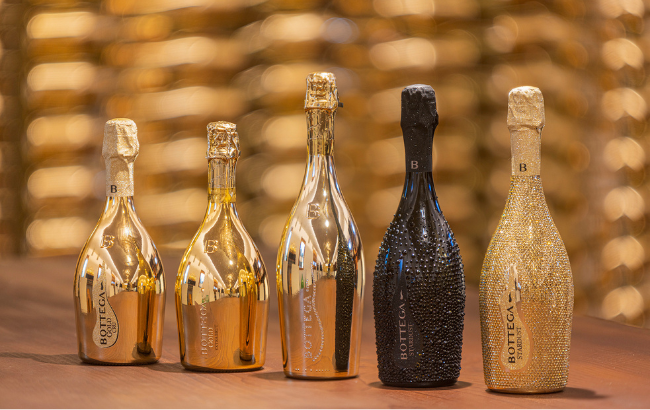Daiyame further expands the gateway to Japanese spirits
By Michael HubandHamada Syuzou broke new ground with an unusual flavour profile, and Daiyame proves shochu’s untapped potential in cocktail bars around the world.
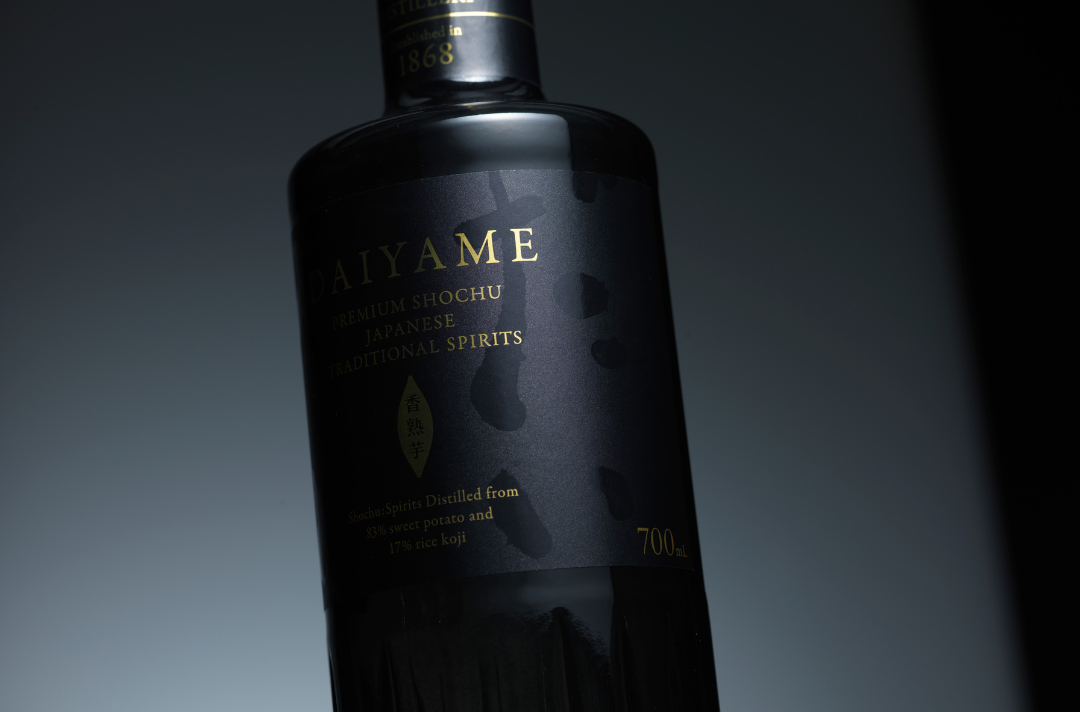
Among the curved wood fittings and the soft, neutral fabrics of London’s Kioku Bar, Julia Momosé is slicing orange peel and separating bunches of thyme. Although several thousand miles from her own cocktail bar, Kumiko in Chicago, she seems perfectly at ease preparing garnishes behind the semicircular bar in the centre of the room. Her eyes flicker to the stack of LPs by the record player, a notable pop of colour in the subtle decor. “Maybe we should start with Etta James,” she muses aloud.
If the setup seems cool to a fault, that was rather the point. Momosé featured as the second act of an evening promoting Daiyame, the imo (sweet potato) shochu brand from Hamada Syuzou Co. The evening began with a masterclass on the shochu’s distinguished history and complex production and ended with patron’s chatting over Momosé’s menu of four innovative cocktails.
Certainly, the bar takeover was designed to explain the intricacies of Japan’s national spirit to an unfamiliar audience. However, it also set out to prove Daiyame’s international appeal. Through a full evening of tasting, both neat and in cocktails, Hamada sought to prove the shochu’s quality, versatility and suitability for cocktails. Above all, it was making a case that Daiyame, for the bartender seeking the next big thing, is cool.
A modern approach built on ancient foundations
As an internationally-minded brand, Daiyame is keen to feature in bars at the cutting edge of contemporary mixology. Its contemporary appeal is evidenced in strong growth since its launch in 2018: between 130% and 200% increases in sales each year.
It also has won over key industry players. Oliver Ward, a spirits journalist and judge, believes it balances heritage and modernity. “Hamada Syuzou,” he says, “is a distillery with a firm axis of ‘tradition’, ‘innovation’ and ‘heritage’. It is a wonderful distillery that continues to evolve and makes a new way with a balance of these three!”
Indeed, though it is finding an audience of innovative bartenders, Daiyame’s foundations are Hamada’s more than 155 years of tradition in making shochu.
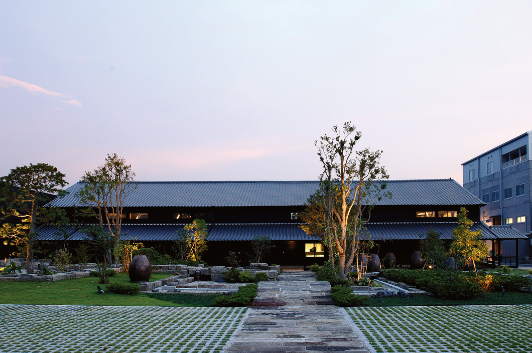
Hamada’s headquarters are situated on Kyushu Island, the southernmost of Japan’s four main islands and the historical centre of shochu production. Around 300 distilleries still operate on the island. The Kagoshima Prefecture, home to Hamada, contains Japan’s oldest written reference to shochu. Graffiti on a shrine dating to 1559 reads: ’Such a stingy client. He’s never treated us to shochu.’
Since its founding in 1868, Hamada has developed an extensive portfolio of shochu products. It now has more than 30 brands, covering a variety of shochu styles. One particular specialism is imo shochu, which uses sweet potatoes as its base.
Historically, the ideal expression of imo shochu would highlight the sweet, earthy quality of the raw material. However, in such a diverse category as shochu, there are myriad options. In order to extend the category’s appeal, both within Japan and beyond, Hamada opted to make a dramatic stylistic choice.
“A fruity style of shochu is currently is the gateway into the category for the world,” explains Kazuhito Shimoozaki, international business section chief of the company. “It’s therefore very important that we select the right sweet potatoes.”
According to shochu traditions, fruity and floral aromas were off-flavours. The compounds responsible (predominantly monoterpene alcohols) are created by overripe potatoes, and therefore often used to be associated with spoilage. In beginning the Daiyame project, however, Hamada realised that these delicate, fruity aromas were a good match for contemporary palates.
Production has been optimised for that style. The potatoes are individually assessed for suitability, humidity is carefully assessed so that they ripen without spoiling and vacuum distillation is used to avoid scorching and preserve delicate flavours.
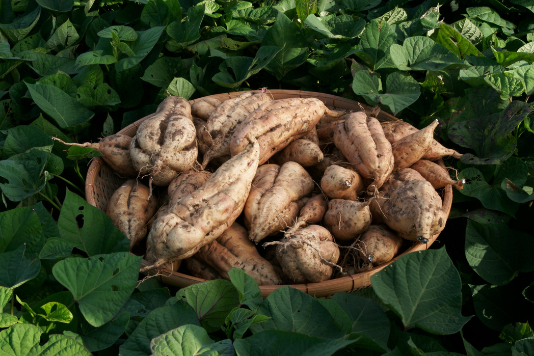
The results are two imo shochu expressions. Daiyame launched in 2018, offering a modern expression at the traditional alcohol level of 25%. Daiyame 40 followed in 2021, targeting export markets with an ABV of 40%, closer to the standard for European and American spirits.
Partner Content
With a clear, though complex, flavour profile and proofs that works in cocktails, Daiyame has plotted a clear path to new consumers. “It’s so important,” Shimoozaki explains, “to focus on beginners, bartenders and mixologists.”
Shochu in action
Thanks to its clear market position, Daiyame is introducing consumers to shochu in bars across the world. Impressively, it is proving far more than a novelty, appearing in a number of guises and serving styles.
The drink can, of course, be consumed neat. In that form, its aromas of lychee, lavender and cassis, alongside the earthy sweet potato note, come to the fore. In Japan, it is traditional to serve shochu with a meal, and that suggestion works for Daiyame too. On tasting the spirit one Meilleur Ouvrier de France sommelier noted its similarity to Gewürztraminer, and so suggested serving it neat and chilled with dessert.
It is also well suited, as proved at the London masterclass, to a classic Japanese highball. Mixing Daiyame with soda or tonic water releases its characteristic aromas in a refreshing long drink.
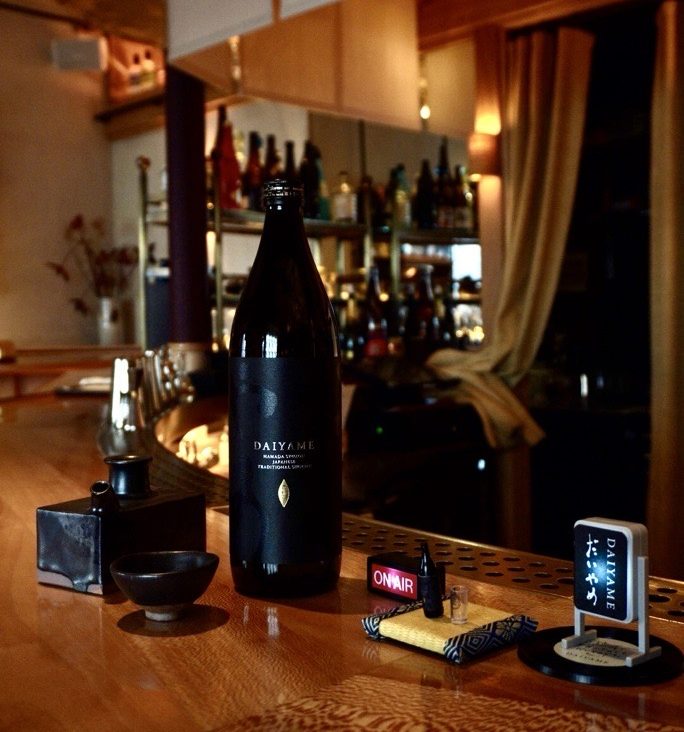
However, it can also serve as the base for more ambitious cocktails. Shuzo Nagumo, who operates Spirits&Sharing.inc, believes it can break new ground for the category. “While Daiyame is excellent in a highball style,” he says, “I felt strongly that it should be recommended to overseas customers as a new style of shochu. It has a taste that is very easy to use in cocktails.”
At RPM by D.Bespoke, Singapore’s only shochu bar, twists on classic cocktails are helping introduce customers to Daiyame. “Since shochu is not yet widely recognized in Singapore, we offer twist cocktails based on classic cocktails made with shochu in our bar,” says bar manager Kentaro Satoh. “The cocktail I made is a twist on the ‘Hemingway Daiquiri.”
Further afield, Daiyame is also finding fans. At Steep LA, a modern tea room that moonlights as a popular bar, staff serve Daiyame 40 topped with sparkling oolong tea. “It just wow’d me right away,” says owner Samuel Wang.

Unsurprisingly, New York City is also making the most of the spirit. Kenta Goto, owner of the namesake Bar Goto, uses it in his Lychee-ish Martini: “While it retains the aroma and flavour of lychee, we have made it into a dry Martini with restrained sweetness.”
Even US icon Death & Co has found a spot for Daiyame on the backbar. Matthew Belanger, Death & Co LA’s associate beverage director, created Bulls on Parade, a cocktail that blends Daiyame 25, rum, maraschino, citrus and honey. “I could not believe something made with sweet potatoes could taste so delicate and ephemeral,” he says. “Especially knowing how burly and ‘masculine’ imo shochu can be, I was really struck by the grapefruity, floral, lychee quality of the Daiyame 25”
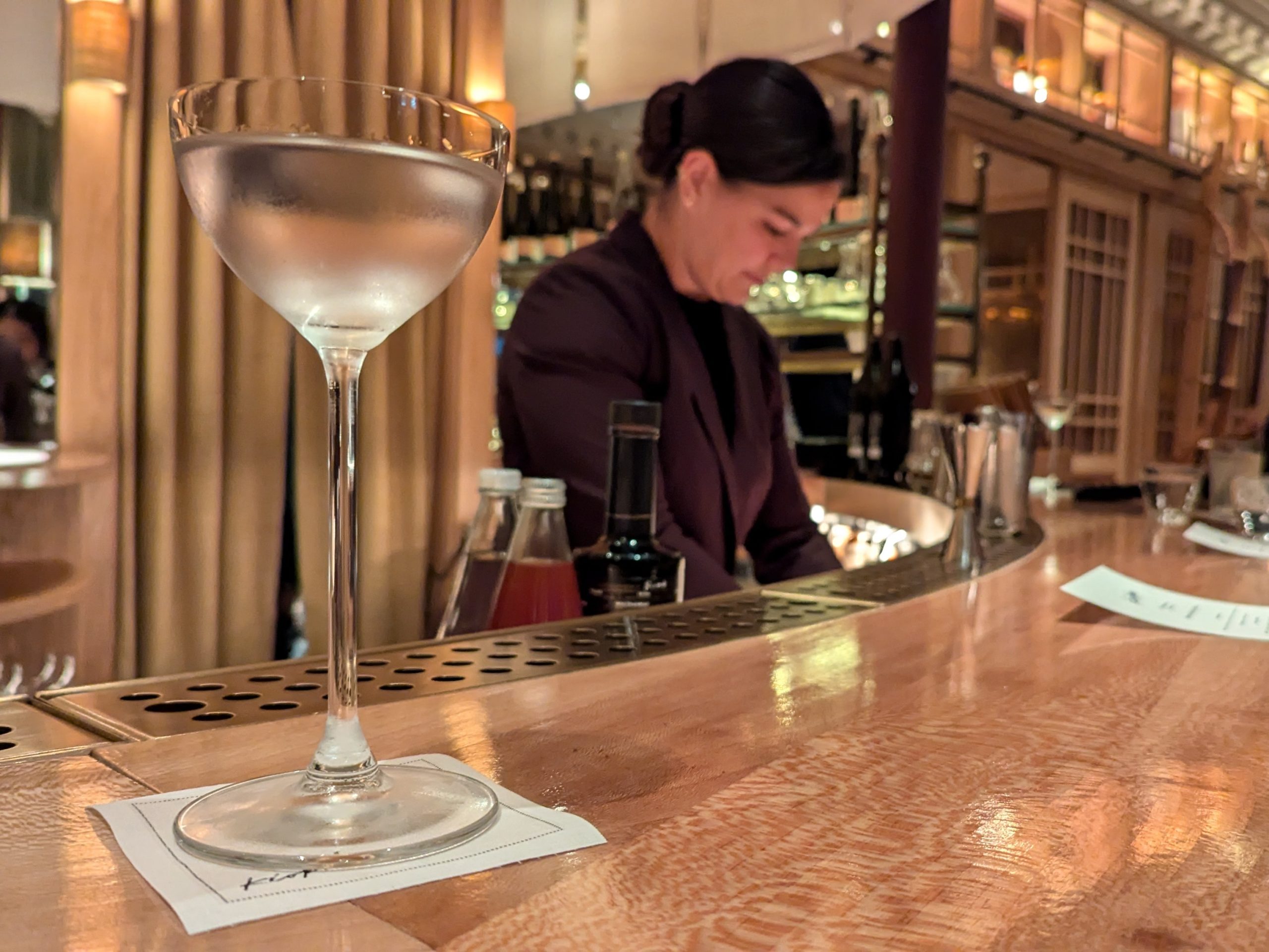
As for Momosé, her cocktails included twists on several classics. Showcasing an Italianate spritz, a highball variation and a lychee martini, she highlighted Daiyame’s refreshing qualities, but also proved its unexpected versatility. “I love those combinations of floral and earthy,” she said, introducing her Paramore Espresso Martini.
Although imo shochu has centuries of tradition, it has yet to become a cocktail bar essential. Yet, as a spirit that can pair with coffee, rum, campari or oolong, Daiyame certainly presents considerable possibilities to mixologists.
Its versatility is a key selling point as the world becomes better acquainted with both the traditional and modern fades of shochu. On the evidence Daiyame offers, the world’s top bartenders are starting to take notice.
Discover the full story with this video: DAIYAME 40 – Premium Shochu Japanese Traditional Spirits.
Related news
Former Rémy Cointreau exec joins Nimbility in Japan



